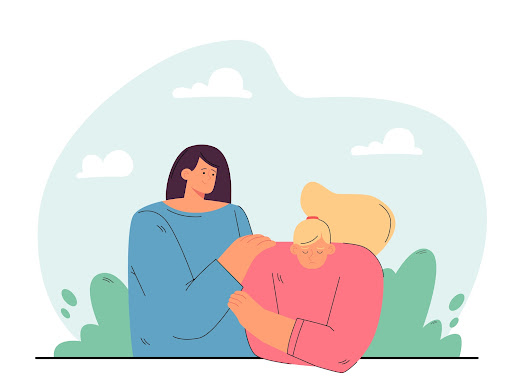Depression Women: Symptoms, Causes, and Treatment
Depression in Women: Early Warning Signs and Symptoms
Women may show different symptoms of depression than males. Clinical depression, sometimes referred to as "major depressive illness," affects more women than men (MDD). One in four women will reportedly have a significant depressive episode at some point in their lives.
Feelings of melancholy and hopelessness may accompany depression. Women who experience it may feel useless and helpless. The degree of depression symptoms might change from episode to episode and can range from mild to severe.
Some of the major depression symptoms in women can include:
- Loss of interest in activities that once were pleasurable
- Loss of interest in sex
- Feeling sad or empty
- Struggling with anxiety
- Being restless or cranky, not to be confused with manic depression or bipolar disorder
- Excessively crying
- Having feelings of guilt or worthlessness
- Feeling helpless, hopeless, or generally pessimistic
- Changes in appetite — weight loss or weight gain
- Sleeping too much or too little
- Feeling fatigued, having less energy
- Difficulty concentrating or making decisions
- Physical symptoms that include headaches, chronic pain, and digestive issues These physical symptoms typically do not respond to treatment.
- Suicidal thoughts, Suicide attempts
How Women's Depression Differs
Depressive symptoms in women are one of the things that can differ from men. There are multiple ways that depression affects women differently, including:
- Women more often have feelings of guilt
- They’re more prone to attempt suicide (however they actually take their life less often than men do)
- Depression can happen earlier in life for women than men
- A depressive episode can last longer and be more likely to reoccur
- It’s more commonly tied to life events that are stressful
- It’s more likely to be associated with an anxiety disorder — phobic disorder, eating disorder, or panic disorder
Causes of Depression in Women
There are several potential reasons why women experience depression. Girls' risk of having depression doubles as they enter puberty, compared to boys' risk at the same age. This is attributed by some experts to variations in hormone levels that young women normally experience around puberty.
A woman's chance of having depression may also be higher due to biological, reproductive, and genetic factors. Additional relevant factors include interpersonal connections, personality qualities, and psychological attributes.
Women might have an increased risk of depression due to the following:
A family history of depression or other mood disorders
Loss of a parent in the formative years (before age 10)
History of other mood disorders in earlier reproductive years
Ongoing social or psychological stress can include relationship stress, divorce or separation, loss of a job, or other loss or trauma.
Lacking or loss of a social support system, or fear of that loss
Use of some medications
Physical abuse as a child
Postpartum depression is a particular kind of depression that some women may experience after giving child. Our scientifically validated postpartum depression questionnaire is a fantastic place to start if you think you or someone you know may be suffering from postpartum depression.
It will help you figure out your situation and get the healing process started.
How to Treat Depression in Women
Medication:
When combined with treatment, antidepressant medications are frequently highly successful in addressing the symptoms of depression in women. They function by regulating stress and arousal chemicals. You can discuss other antidepressant drugs with a psychiatrist in person or online. Although they cannot "cure" depression, antidepressant drugs can greatly reduce its symptoms.
Cognitive behavioral therapy (CBT):
Antidepressant medication has been demonstrated in some instances to be less effective than cognitive behavioural therapy. CBT can be highly beneficial for women who have mild to moderate depression. However, a CBT and medicine combination may work best in situations of more severe depression.
Talk therapy:
Women can learn how to process their feelings through talk therapy or psychotherapy. They can discover new ways of thinking, which helps lessen certain depression symptoms.
Self-help techniques:
Self-help methods are an effective adjunct to treatment and/or medication for treating depression. For women who are searching for help reducing certain symptoms of depression, things like journaling, meditation, eating a nutritious diet, exercising frequently, practising yoga, creating a healthy sleep habit, and other therapeutic self-help techniques could be effective possibilities.
Spravato Treatment:
The Federal Drug Administration (FDA) has just authorised Spravato as the first brand-new antidepressant in many years. People with depression who are resistant to therapy should use Spravato. You may be eligible for spravato treatment if you have a current diagnosis of depression and have not reacted effectively to at least two other oral antidepressants.
Ketamine, a substance that has been used as an anaesthetic in hospitals since the 1970s, is the source of Spravato. Its benefit in easing depressive symptoms is a relatively recent discovery. The distinctive feature of Spravato nasal spray for depression is that it is self-administered in our clinic under a doctor's supervision. One should stay at the esketamine clinic for around two hours after giving Spravato.




Comments
Post a Comment